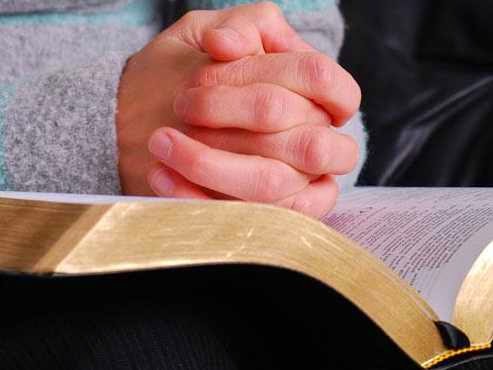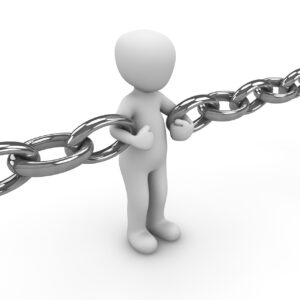When I was a new Christian, I had a notebook of people’s names that I would pray for. This list was of people I knew weren’t saved and were on their way to Hell. I used to spend a half hour a day praying mightily for their salvation from God’s judgment. I prayed for atheists, for a wiccan friend of my cousin’s, for convicted criminals and especially people on death row! I knew from scripture that every single human being was precious to God, such that He would take on human flesh and suffer unimaginable torture and humiliation in order to pay their debt so that He could spend eternity with them in Heaven. I spent so much time praying for lost souls that a couple of doubts arose in my mind. I was thinking of Hell so much that some of the traditional objections to the doctrine of Hell popped up in my mind. Hell really bothered me emotionally and intellectually. Fortunately I found some answers to these nagging issues through my studies of apologetics. Hell still bothers me emotionally, but no longer intellectually. In fact, as I mention in “The Doctrine Of Hell and Objections To It”, the thought of people going to Hell emotionally bothers God too.
However, a second problem arose in my mind that had to do with prayer. If God does not force anyone into Heaven because He respects their free will, and since He wants them to be saved anyway (2 Peter 3:9, 1 Timothy 2:4, Ezekiel 18:23, Ezekiel 33:11), then what is the point of my praying for them? If God’s grace is resistible rather than irresistible, then no matter how hard I pray, it won’t make a difference. God wants them saved anyway and He’s doing His best to get them to freely choose to turn away from the life that they’ve been living, so, whenever I pray “God, please save Richard Dawkins [[for example]] from a miserable afterlife”, I can imagine Him responding “I’m trying my best. I’m extending grace to him, the gospel message has been preached to him several times, He’s heard all the compelling scientific and philosophical arguments for my existence, but he just stubbornly refuses to come to me. Now, I could appear to Him in a theophany, but that would be overpowering and his freedom would be overridden. I could also turn up the power on the Holy Spirit’s grace, but it’s already as strong as it can be without being coercive.” Moreover, since the Bible teaches that God desires everyone to be saved, God would be doing the things mentioned in the above hypothetical response to bring about Dawkin’s salvation regardless of whether I asked Him to or not.
*This Is A Problem For Both Arminians and Calvinists
Given both of these things, what’s the point of praying for someone’s salvation? I’ve struggled with theological problem for years! I thought it posed a problem for Arminian theology, but then I realized that it posed a problem for Calvinism as well. I initially thought “Oh, well, on Calvinism, God’s grace is irresistible, and God doesn’t care about whether we worship Him freely or not. So if I pray, on Calvinism, God might heed my prayer and zap someone with that irresistible grace and compel them to repent. So the problem of free will doesn’t exist on that view.” However, then I realized what Calvinists believe regarding predestination. On Calvinism, God’s list of who He wants to save (which is not everyone, contrary to what The Bible says) is essentially set in stone. We cannot change his mind and persuade him to add another name to the list. God will irresistibly drag to salvation whomever He chooses. If your prayer is answered, it’s because it just so happened that this was a person God wanted to save. But in reality, your prayer did nothing. It was just coincidental that the person you prayed for was one of God’s chosen. God decreed that person to salvation before He even created the universe. On Calvinism, our prayers don’t affect the list of the predestined. So…what’s the point of praying for the lost on the Calvinist view also? It seemed to me praying for the lost was a pointless exercise on both views on soteriology.
*Does Molinism Offer A Solution?
I think Molinism might offer a better solution than either of the two soteriological positions, and because of that, it gives me more motivation to shun traditional Arminianism and Calvinism for the view of Luis Molina. I learned that Molinism can offer a great deal of rational answers to this dilemma, not just about praying for the lost, but even prayer in general.
William Lane Craig, Christian Apologist, and philosopher writes “We should not think of prayer as changing God’s mind or changing events. God knows from eternity everything that will transpire in time, so that prayers do not literally change anything. For God’s foreknowledge already takes our prayers into account. God’s foreknowledge is chronologically prior to the prayers we offer, but the prayers are logically prior to what God foreknows. If we were to pray differently or fail to pray, God would not be caught by surprise but have already factored that into His providential plan.
William Lane Craig writes “So then how do our prayers make a difference if they do not change things? Precisely by being factored by God into which world He has chosen to create! Were we not to pray, then perhaps God would not have done such-and-such. Because God knew that you would pray for a certain thing, God has so arranged the world that that thing happens. Had you not prayed, God would have created a different world instead. So through His middle knowledge of how we would pray in different circumstances, our prayers make a tremendous difference in which world is actual.”
Dr. Craig went on to say “Now, of course, in some, perhaps many, cases, God has overriding ends in view that may prompt Him to say “No” to our prayers. To use your example, if our prayers conflicted with the optimal balance in the world between saved and unsaved, then I think it to be fairly obvious that God would prefer to let our prayer go unanswered than to let someone go to hell by answering our prayer! But those aren’t the only options. Perhaps if you were to fail to pray for the salvation of a certain person, then God would not have created that person but created someone else instead. Or maybe He wouldn’t have created you but created someone else instead who would pray for the person! There may be lots of worlds having the same optimal balance between saved and lost which are available for God to choose from.”
So, God’s middle knowledge helps him to factor in our prayer request into His overall scheme. Once again, I’ll give a brief explanation of what this means. God has middle knowledge according to the Molinist theology. This knowledge is knowledge of what any individual would do under any given circumstance. Let’s say God knows that Bob, if placed in circumstance S would freely choose action A over action B. Let’s say action A is what God wants Bob to choose. So if God wants Bob to choose action A instead of action B, He will choose to actualize somehow circumstance S so that He can get Bob to choose action A. God can get things done without violating human freedom.
So, on this view of prayer, God know what you would pray for in any circumstance you are placed in. God knows what you would pray for in any and every possible world. God knows that “If Evan endures through circumstances X, Y, and Z, He would become a Christian in the year 2009” and “If Evan becomes a Christian in 2009, he would pray for Chester {{random name for illustration purpose}}” and “If I actualize the world in which Evan endures through circumstances X, Y, and Z and prays for Chester, to answer this prayer, I will have to actualize possible world No. 77788 because that’s the only possible world where Chester is put in circumstance S which is a circumstance that I know that Chester, if put in that circumstance, would respond to my grace and be freely saved”.
So God, in order to answer my prayer, actualizes world number 77788 in which I endure through circumstances X, Y and Z, give my life to Christ in September of 2009, and it’s also a world where I learn of this Chester character, knows of his spiritual state, and chooses to pray for him. My prayer is answered because God, in His middle knowledge, knew that I would pray for Chester in possible world number 77788 and plausibly in several other possible worlds as well. Or perhaps God, knowing I’d pray for Chester’s salvation, wouldn’t create him in this world at all. Now, as I said, God does want all people to be saved, so wouldn’t my objection hold against the Molinist view as well? Wouldn’t God actualize world number 77788 even if I don’t pray for Chester in possible world #77788 and perhaps others? Moreover, if God can get people to choose how He wants them to choose by acting on His middle knowledge to put them into a circumstance where He knows that, if placed in those circumstances, they would make the choice God wants them to make, then why hasn’t God actualized a possible world where everyone is placed into a situation where God knows they’d make the free decision to receive Christ? This is an interesting question, and it leads me into another discussion with regards to Molinism’s version of predestination (the second S in the R.O.S.E.S acronym).
*Why Hasn’t God Actualized A World Of Universal Salvation?
On the Molinist view, there are worlds that are logically possible but that God cannot actualize. They are infeasible for God to create? “But if God can do anything logically possible, and if a world is logically possible for God to actualize, then what prevents Him from actualizing that world?” The answer to this is simply; free will.
God, from eternity past had a potentially infinite number of possible worlds that He could choose to actualize. However, God wanted a world with libertarian freedom so that our love for Him and others could be genuine. But given free will, God cannot guarantee that whichever world He actualizes, all people will cooperate with Him all of the time. I’m one of those Molinists that believes in transworld depravity. I think it’s extremely plausible to think that in any world God could actualize, there would be at least some individuals who do evil and/or reject God’s provision of grace to save them. There’s a difference possible worlds and feasible worlds. Some worlds may be logically possible for God to create, but not feasible for Him to create given that in some worlds (the ones with free will) people will go wrong. It’s logically impossible to force someone to freely do something. So even though a world with universal salvation is possible, it may not be feasible given the monkey wrench of free will.
I hold that it’s feasible for God to actualize a world with universal salvation. But such a world would very likely be a world with only say, one, or perhaps two people. I hold that it’s quite plausible that God has overriding reasons for preferring a world like ours even though universal salvation doesn’t come about. For one, we know from scripture that God desires the world to be bursting at the seams with human beings. In Genesis 1:28, He told Adam and Eve “Be fruitful and multiply… fill the earth and subdue it”. So we know from scripture that God wants the planet to be covered in people. That’s why He told Adam and Eve to multiply and “fill the earth”. He wasn’t content with the human population remaining at 2. So while God could utilize His middle knowledge to actualize a world where only one person exists, whom He knows would always do what is right, God plausibly has overriding reasons for wanting a very populated world.
God wants a world that is:
1: A world bursting at the seams with people (Genesis 1:28)
2: People made in His image (Genesis 1:26-27, Genesis 9:6).
3: People who love Him and each other (see Matthew 22:37-39, Mark 12:30-31, Luke 10:27).
4: And to do this, they must have the freedom to do otherwise (Deuteronomy 30:14-19, Joshua 24:15).
5: All people to do right and to refrain from evil (e.g The Ten Commandments).
6: All people to be saved and no one to end up in Hell (2 Peter 3:9, 1 Timothy 2:4, Ezekiel 18:23).
7: Crafted by His own hands.
God might be able to achieve 5 and 6, if he sacrifices properties 1 or more of the first 4 listed above. For example, God could choose to actualize a world in which properties 5 and 6 listed above come about, but He must sacrifice either 1, or 4, or both. Sacrificing number 4 would result in the termination of number 3. A world with universal salvation and 100% moral goodness is likely a world with hardly any people in it who have libertarian freedom…OR it’s a world with as many people as this one, but God is controlling what everyone does. OR perhaps it’s a sparsely populated world AND one where God is controlling everything everyone does. But it’s very unlikely that it’s feasible for God to actualize a world with all 7 properties that God desires.
I don’t think it’s feasible to put every creature in situations where God knows they’ll behave the way He wants them to. For example, I read an article recently on The Poached Egg by someone who said that it was by reading Richard Dawkins’ “The God Delusion” that he decided to convert to the Christian faith. Why? Well, because he said that the arguments against God and for atheism were so shotty, so bad, that he concluded that atheism was indefensible. This prompted him to read works arguing in favor of Christianity to see what they had to say about these topics, and that was enough to convince them that atheism was a farce. Now, what if this world is one where Richard Dawkins became a Christian at, say, 17. If that’s the case, then he would never have written “The God Delusion”. And if that was the case, this guy would never have read it and concluded that atheism was indefensible and that theism was a welcome alternative.
In this case, if Dawkins was saved, this other fellow might not have been. If this fellow was saved, it may be the case that this is a world where Dawkins is never saved. There could be many situations are incompatible. Where if the situation has property A, person 1 goes wrong and person 2 goes right, or if the situation has property B instead of A, person 1 goes right and person 2 goes wrong. Given the complexity of the quadrillions and quadrillions and quadrillions of interactions between free agents and events, God can only achieve so much via middle knowledge.
I find it very, very, very likely that in a world with billions and billions of free creatures, the circumstances that God knows that everyone, if put in those situations, would freely repent isn’t feasible. The situations are not compossible. If circumstance S is a circumstance where God knows persons A, B, and C would freely choose to be saved, might just as well be a circumstance where persons D, E, and F are damned. If God chooses to actualize circumstance S, He brings about the salvation of persons A, B, and C, but consequently, D, E, and F are damned. If God were to refrain from actualizing circumstance S, D, E, and F would be saved, but sadly, persons A, B and C would be eternally damned. And I hold that there are most likely many, many circumstances like that. The circumstances cannot be cobbled together to ensure universal salvation because the salvic-circumstances cancel each other out in many many cases.
I call this view the “Sophie’s Choice” model of Molinist Predestination. Now, as this relates to my prayer for a persons salvation (e.g Chester). It is not true that God would choose to actualize a world where Chester is saved because the circumstance where Chester is saved might be a circumstance that results in the damnation of 2 or 3 other individuals even though God wants Chester to be saved. A world where Chester is saved might be a world where other people are lost. But God, if He decides to answer my prayer, will decide to actualize a world where Chester is saved, and, if possible, the people who would have been damned a result of the specific circumstance that resulted in Chester’s salvation, would put these 3 other people in different circumstances if perhaps they would be saved in these other circumstances. Or perhaps the circumstance that would result in Chester’s damnation is the only world where persons 1, 2, and 3 would end up saved. So God decides to not actualize the circumstance where Chester would choose to be saved for the sake of these 3. My prayer goes unanswered for the sake of the greater good. More people end up being saved from Chester ending up damned.
It should also be noted that since we have libertarian free will, and our circumstances don’t causally determine us to do what we do, no human being has an excuse for not repenting. Everyone can be saved. People can do differently in the situations they’re placed in. It’s just that God knows whether we won’t do differently. It’s a would do/would-not-do differently situation rather than a can-do/cannot-do-differently situation. As such, no man can stand before God on judgment day and say “If only you had placed me in a particular situation, then I would have repented. But because you did not place me in that particular situation, I did not repent, and now I stand here before you condemned. So this is all your fault, God.” God will say “No, you had the freedom to choose me or reject me. It was possible for you to do either no matter what situation I placed you in.”
God gives prevenient and resistible grace to every single individual (As Jesus said in John 12:32). This overcomes their inability to come to Him mentioned by Jesus in John 6:44 and John 6:65. So even though there may be a possible world where say, Richard Dawkins is a born again Christian, it’s entirely possible for him to be that in any world God creates. It’s up to him whether he is or is not. I like how Randy Everist, apologist and author of the blog “Possible Worlds” put it. He said “Molinism is the view that we pick what we would do and based on that, God picks what we will do.”
No matter what world God chooses to actualize, if Chester ends up damned, he has only himself to blame.
*In Summary
Praying for the salvation of a human individual IS a worthwhile exercise after all…if Molinism is true. If Arminianism or Calvinism is true, then it turns out that praying for the lost is a pointless exercise. Like so many other theological issues, Molinism is the best explanation for prayer and especially prayer for the lost. God knows how we would pray in any possible world and takes our requests into account. On this view of prayer, God know what you would pray for in any circumstance you are placed in. God knows what you would pray for in any and every possible world. God knows that “If Evan endures through circumstances X, Y, and Z, He would become a Christian in the year 2009” and “If Evan becomes a Christian in 2009, he would pray for Chester” and “If I actualize the world in which Evan endures through circumstances X, Y, and Z and prays for Chester, to answer this prayer, I will have to actualize possible world No. 77788 because that’s the only possible world where Chester is put in circumstance S which is a circumstance that I know that Chester, if put in that circumstance, would respond to my grace and be freely saved”.
So God, in order to answer my prayer, actualizes world number 77788 in which I endure through circumstances X, Y and Z, give my life to Christ in September of 2009, and it’s also a world where I learn of this Chester character, knows of his spiritual state, and chooses to pray for him. My prayer is answered because God, in His middle knowledge, knew that I would pray for Chester in possible world number 77788 and plausibly in several other possible worlds as well. Or perhaps God, knowing I’d pray for Chester’s salvation, wouldn’t create him in this world at all.
A possible world with
1: A world bursting at the seams with people (Genesis 1:28)
2: People made in His image (Genesis 1:26-27, Genesis 9:6).
3: People who love Him and each other (see Matthew 22:37-39, Mark 12:30-31, Luke 10:27).
4: And to do this, they must have the freedom to do otherwise (Deuteronomy 30:14-19, Joshua 24:15).
5: All people to do right and to refrain from evil (e.g The Ten Commandments).
6: All people to be saved and no one to end up in Hell (2 Peter 3:9, 1 Timothy 2:4, Ezekiel 18:23).
7: Crafted by His own hands.
Is not a feasible world for God to create. Even though God knows what circumstance to put everyone in, that if people are placed in circumstances, they would choose to be saved, The circumstances cannot be cobbled together to ensure universal salvation because the salvic-circumstances cancel each other out in many cases. This is precisely why (most likely) why God cannot actualize a world with properties 5 and 6 if he actualizes a world with properties 1, 2, 3, 4, and 7.





